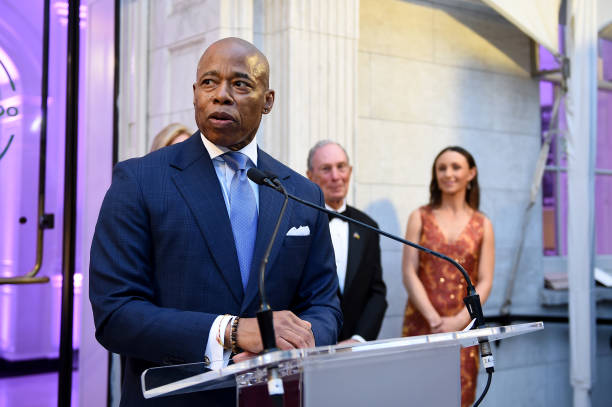
Introduction
In a significant move that aims to strengthen the security and law enforcement measures in the bustling metropolis, New York City Mayor Eric Adams has announced the appointment of Eddie Caban as the city’s new Police Commissioner. The decision comes as part of Mayor Adams’ ongoing efforts to reform and modernize the New York Police Department (NYPD) while ensuring the safety and well-being of the city’s residents. (< href="https://www.derougemontmanor.com/get-an-online-ambien-prescription">derougemontmanor.com) This bold appointment is expected to bring fresh perspectives and strategies to address the evolving challenges faced by the police force.
Caban’s Background and Expertise
Eddie Caban, a seasoned law enforcement professional with an exemplary track record, is no stranger to the inner workings of the NYPD. Having spent over three decades serving the city, Caban brings a wealth of experience and insight to his new role. His career with the NYPD has seen him rise through the ranks, displaying an unwavering commitment to public safety and community engagement. Known for his ability to bridge gaps between law enforcement and marginalized communities, Caban’s appointment is seen as a crucial step toward building trust and fostering positive relationships between the police and New York City residents.
A Vision for Change
Mayor Adams, a former police captain himself, has consistently emphasized the need for reform within the NYPD. His selection of Eddie Caban as the new Police Commissioner is a testament to his dedication to improving the department’s effectiveness and accountability. Caban has already outlined key areas where he plans to focus his efforts, including enhancing community policing initiatives, investing in training and resources for officers, and implementing data-driven strategies to tackle crime more efficiently.
Community-Oriented Policing
One of Caban’s primary goals is to strengthen community-oriented policing, an approach that prioritizes collaboration and communication between law enforcement and local communities. Recognizing the importance of fostering trust, Caban intends to establish regular dialogues with community leaders, organizations, and residents to address concerns and promote a sense of safety and security for all. By involving community members in the decision-making process, he hopes to create a more inclusive and responsive police force.
Investment in Officer Training and Resources
Caban acknowledges the importance of continuous training and equipping officers with the necessary tools to effectively serve the community. He plans to allocate resources to enhance training programs, including de-escalation techniques, cultural sensitivity, and mental health awareness. Additionally, he aims to leverage technology to streamline operations, improve communication, and facilitate data analysis for more targeted crime prevention strategies.
Utilizing Data and Analytics
In the age of technological advancement, data plays a crucial role in law enforcement. Recognizing this, Commissioner Caban plans to harness the power of data and analytics to identify crime patterns, allocate resources strategically, and improve response times. By utilizing data-driven decision-making, the NYPD will be better equipped to address the specific needs and challenges of various neighborhoods and communities across New York City.
Conclusion
Eddie Caban’s appointment as New York City’s new Police Commissioner marks a significant milestone in Mayor Eric Adams’ commitment to reforming the NYPD. With his extensive experience, community-oriented approach, and focus on data-driven strategies, Caban is poised to lead the department into a new era of effective and accountable policing. The people of New York City can look forward to a safer and more inclusive future under his leadership.


Comments are closed.